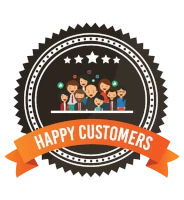The Psychology of Drinking: How Liquor Impacts Mood and Behavior

This article explores how different types of liquor influence mood, behavior, and decision-making, from enhancing confidence to promoting social interaction. It highlights both the positive and negative psychological effects of alcohol, emphasizing the importance of moderation.
Alcohol has been a part of human social life for centuries, with people across the world consuming it to relax, celebrate, or bond with others. But beyond its social benefits, alcohol has a significant psychological impact. It doesn’t just affect the body; it also influences mood, behavior, and decision-making. Understanding how different types of liquor can alter our psychological state helps us make informed choices about how and when to consume alcohol.
It is advisable to have alcohol/liquor drinking license in Maharashtra. You can apply online for alcohol/liquor drinking liquor license here : Click Here to Apply Now
The Science Behind Alcohol and the Brain
When you drink alcohol, it enters your bloodstream and affects the central nervous system. Alcohol is a depressant, which means it slows down brain function, reducing activity in the brain’s prefrontal cortex—the area responsible for decision-making, reasoning, and social behavior. This is why alcohol often leads to a loosening of inhibitions, making us more talkative, confident, and sociable.
However, alcohol also increases the release of dopamine, the brain’s “feel-good” chemical. This can make people feel euphoric, happy, or even invincible, especially in social situations. But, the effect of alcohol can vary greatly depending on the type, amount consumed, and individual factors such as tolerance and mood.
The Different Psychological Effects of Liquor
Not all types of liquor are created equal, and the psychological effects can vary depending on what you're drinking, how much, and how fast.
1. Beer and Wine: The Social Lubricants
Beer and wine are often the go-to choices for social gatherings, and for good reason. These drinks tend to have a moderate alcohol content, meaning the effects are gradual. Beer’s lower alcohol concentration, along with its carbonation, can make it more refreshing and less likely to lead to an intense buzz. Wine, especially red wine, is often associated with relaxation and ease, providing a smoother, less immediate effect.
Psychologically, these drinks are likely to induce a sense of calm and relaxation without overwhelming the consumer. A glass of wine can promote bonding during a dinner party, while beer encourages casual conversation, especially in group settings like bars or gatherings. In moderate amounts, both beer and wine can help people feel more connected to others and more comfortable in social situations.
2. Whiskey: Confidence and Risk-Taking
Whiskey, with its higher alcohol content, tends to have a stronger impact on mood and behavior. Many people report feeling more confident and outgoing after consuming whiskey. This is due in part to the increased dopamine levels that promote feelings of euphoria and excitement.
However, whiskey’s stronger effects can also lead to increased risk-taking behavior. When people drink whiskey, they may feel emboldened to take chances, whether that’s initiating conversations with strangers or making bold decisions that they wouldn’t normally make. While this can sometimes be empowering, it can also lead to poor judgment, with individuals making decisions they later regret.
Whiskey can also enhance the feeling of being “in the moment,” heightening emotional experiences. This is why whiskey is often chosen for celebratory occasions or to mark important milestones, as it can make the event feel more significant and memorable.
3. Vodka: The Social Connector
Vodka is a versatile spirit that can be used in many cocktails. It has a clean, neutral flavor, making it the base for various drinks, but its effects are anything but neutral. Vodka is known for its quick impact, often leading to an immediate buzz or sense of warmth.
Psychologically, vodka is often associated with socializing and group dynamics. The drink’s potency tends to lower inhibitions quickly, making people more talkative and more willing to engage in lively conversation or even dance. In social settings, vodka can create a sense of connection and encourage a sense of freedom, but its effects can quickly escalate, leading to overconfidence and, in some cases, a loss of control.
The rapid onset of vodka’s effects can also contribute to mood swings, depending on the individual. Some may feel euphoric and energized, while others may become more introspective or emotional, especially as the alcohol starts to take full effect.
4. Tequila: The “Party” Liquor
Tequila is often linked to high-energy, party environments, and for good reason. It has a high alcohol content, and the effects are usually quick and intense. Tequila is famous for its ability to boost energy and increase extroversion, making it a popular choice for those looking to break free from social inhibitions.
When consumed, tequila can create a sense of exhilaration and excitement. People tend to feel more adventurous, sometimes leading to impulsive decisions or behavior that might be out of character. It’s not uncommon for tequila to evoke feelings of celebration and freedom, but it can also result in a rapid emotional shift once the alcohol takes its toll, making some people feel overly emotional or aggressive as the buzz wears off.
Because of its high alcohol content, drinking tequila can also result in a quicker shift from euphoria to inebriation, leading to impaired judgment and a greater chance of risky behavior. While many enjoy the upbeat energy that tequila can provide, it’s essential to be mindful of its effects on the mind and body.
5. Rum: The Relaxation and Escape
Rum is often associated with tropical vacations and beach parties, thanks to its sweet, smooth flavor and its ability to create a relaxed, carefree mood. Rum is commonly used in cocktails like piña coladas and mojitos, which are designed to enhance feelings of relaxation and escape.
Rum’s psychological impact is largely tied to its ability to induce a laid-back state of mind. People often drink rum when they want to feel free of stress or enjoy the moment without the weight of responsibility. For many, it evokes feelings of joy and warmth, making it a perfect choice for leisurely social occasions or relaxing after a long day.
However, as with any alcoholic beverage, the effect of rum can intensify with consumption, leading to impaired judgment and behavior if not consumed in moderation.
Alcohol’s Impact on Social Interactions
One of the primary reasons people drink alcohol is its ability to enhance social interactions. Alcohol helps to reduce self-consciousness and anxiety, making people more willing to engage in conversation and interact with others. It’s why many people feel more confident in social situations after a drink or two.
However, the psychological effects of alcohol aren’t always predictable. While some people become more outgoing and talkative, others may become withdrawn or emotional, especially if they consume too much. Alcohol can lower inhibitions to such an extent that it may cause someone to speak or act in ways they normally wouldn’t, for better or worse.
The Dark Side of Drinking: Alcohol’s Potential to Alter Behavior Negatively
While alcohol can enhance social experiences, it can also have negative effects on behavior, particularly when consumed excessively. Alcohol impairs judgment, often leading to poor decisions and risky behavior. People may act more impulsively, disregard personal boundaries, or make uncharacteristic choices they may later regret.
Long-term abuse of alcohol can also lead to serious psychological consequences, such as depression, anxiety, and addiction, which can impact both mood and social relationships. Alcohol’s impact on mental health is significant, with excessive consumption leading to changes in mood, cognition, and behavior.
Conclusion: Moderation is Key
The psychological effects of alcohol are complex and vary from person to person. Whether it’s boosting confidence with whiskey, promoting relaxation with rum, or encouraging socialization with vodka, alcohol has the power to alter our mood and behavior in significant ways. However, its effects depend on many factors, including the type of liquor consumed, the amount, the individual’s tolerance, and the social context.
While moderate consumption can enhance social experiences and improve mood, it’s essential to be aware of alcohol’s potential to impair decision-making and behavior. Drinking responsibly ensures that the psychological benefits of alcohol—confidence, relaxation, and sociability—are enjoyed safely without the risk of negative consequences.
How to get drinking liquor license : Click Here to Apply Now












